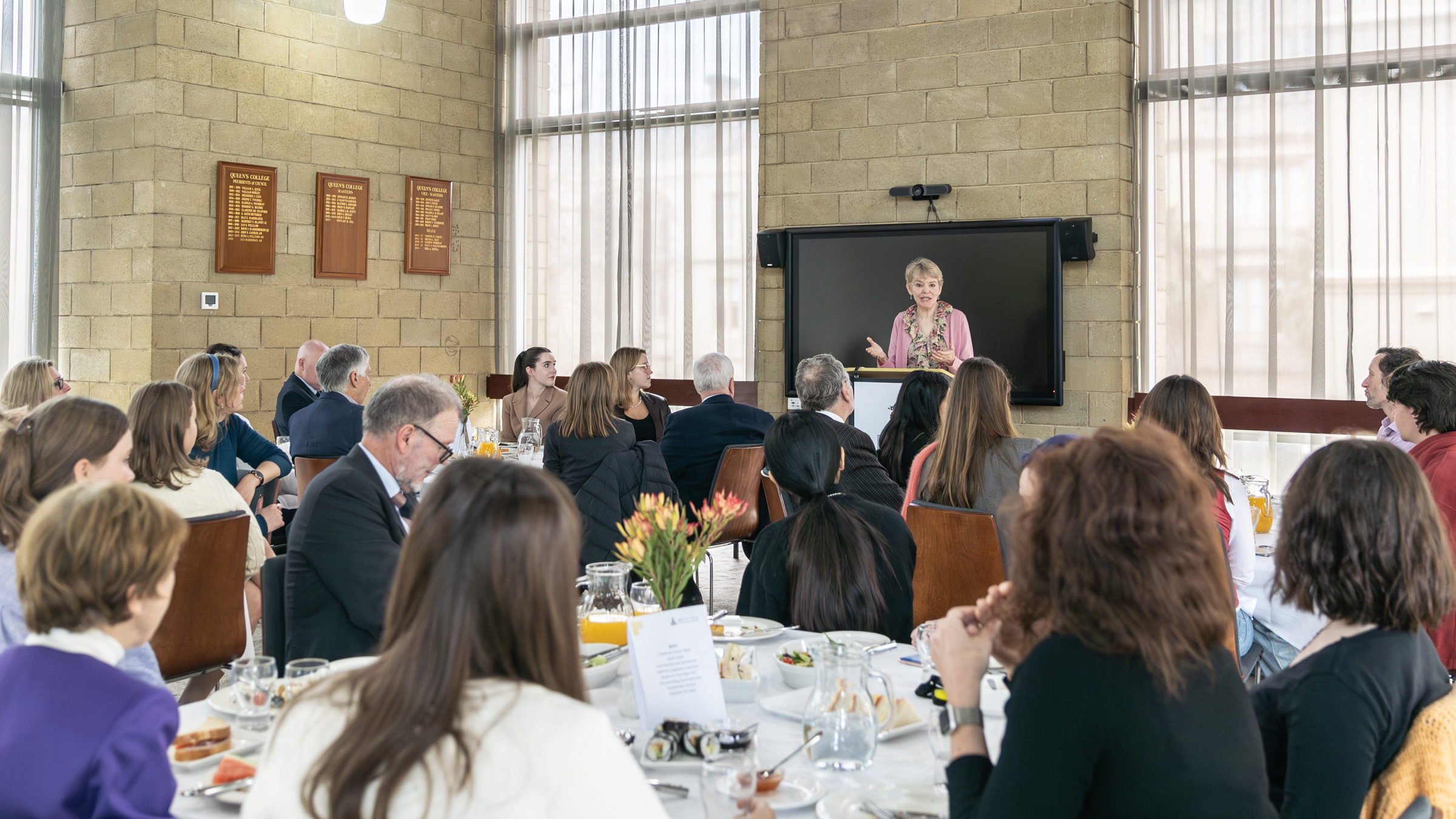There are no set steps in a career

“The moral from my story is that the most interesting things you end up doing, you can’t really plan.”
An observation from Her Excellency Judge Hilary Charlesworth, Australia’s representative on the International Court of Justice (ICJ) when speaking at Queen’s College on Tuesday 25 July.
Judge Charlesworth went on to advise students at the lunch to be open to opportunities.
“Sometimes there’s too much attention given to career planning. To young people, don’t hurry, take your time, don’t feel there’s a set path and you need to progress along it. The most important thing is to be attuned to other possibilities that might come your way. Don’t be too locked into the idea there are set steps in a career.”
Judge Charlesworth’s career, now as one of 15 judges on the ICJ, the first Australian woman and only the fifth female permanent judge in the ICJ’s history, is indeed evidence of embracing opportunities.
On graduating from Arts/Law at the University of Melbourne, she became an associate to High Court Judge the late Sir Ninian Stephen, who encouraged her to pursue a Doctorate of Juridical Science at Harvard Law School. This was when she decided to pursue a career in academia. Teaching at the University of Melbourne, University of Adelaide and the Australian National University, Judge Charlesworth then returned to Melbourne as the Harrison Moore Professor of Law. Her research included the structure of the international legal system, peacebuilding, human rights international humanitarian law, international legal theory, with particular focus on feminist approaches to international law, and the art of international law.
Now having served on the ICJ since 2021, Judge Charlesworth has been nominated to continue her role for a further nine-year term with elections to take place in November. Judge Charlesworth said her role on the ICJ can be overwhelming with cases coming in thick and fast, ranging from land and maritime border disputes to offering advisory opinions on the legal obligations of Israel’s occupation of Palestinian territory, and the legal consequences of climate change.
As an international body, the appropriate use of language is very important. Judge Charlesworth has already made her mark by changing the rules of the ICJ to remove gendered language. No small undertaking. With the Court’s official languages being both English and French, she drew attention to the importance of learning a language other than English.
“The advice I give to anyone generally working in the international sphere is that languages are critical. Having knowledge of any other language besides English, if you can, is completely worthwhile. It’s never too late to learn another language.”
